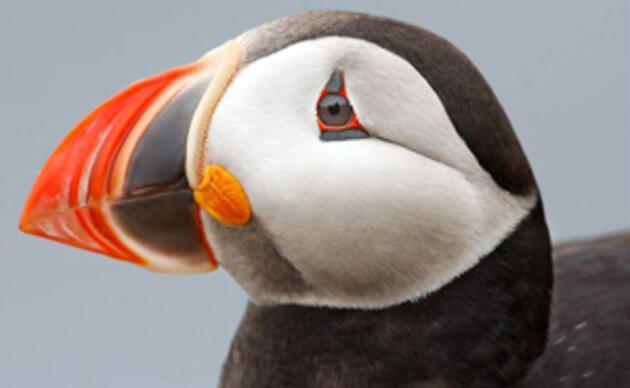Carlos Zavalaga 2003-2005 Herz Fellow
Carlos Zavalaga of Lima, Peru is the first recipient of the Josephine Daneman Herz International Seabird Fellowship. The Fellowship, created in 2003, honors Josephine Herz of Green Valley, Arizona, in tribute to her lifelong interest in bird conservation.
Carlos Zavalaga, presently a graduate student at the University of North Carolina in Wilmington, will participate this summer in Audubon's Seabird Restoration Program on the Maine coast, where he will supervise Audubon's field station on Seal Island National Wildlife Refuge in outer Penobscot Bay.
This summer the Seabird Restoration Program is celebrating 30 years of protecting waterbird colonies on the Maine coast. The program employs 17 interns and 25 volunteers at seven Maine coast islands. These sanctuaries provide habitat for 19 species of colonial nesting water birds, including 95 percent of Maine's Atlantic Puffins, 84 percent of its terns, 63 percent of its Razorbills, and Maine's only mixed colony of ibis, egrets, and herons. The techniques developed to restore and protect these colonies are now used worldwide.
While working at Seal Island, Zavalaga will learn techniques that have restored puffins and terns to this 100-acre refuge. He will work with Dr. Stephen Kress, Director of the Seabird Restoration Program and other Audubon staff. The goal of the new fellowship is to teach biologists from developing countries restoration techniques that they can use to help rare and endangered seabirds in their home countries.
Zavalaga received his B.S. degree in biology and chemistry from the Universidad Peruana Cayetano Heredia, and has since studied seabirds and marine mammals in Peru for the past ten years. From 1993 to 1997 he studied the endangered Humboldt Penguin at Punta San Juan, a marine reserve in southern Peru in collaboration with the Wildlife Conservation Society. He also collected information on the breeding biology of Inca Terns and Peruvian Pelicans; the diet of Guanay Cormorants; and the population size of Red-legged cormorants. He also conducted studies of maximum diving depth of Peruvian Diving-petrels and the nesting ecology of Peruvian Terns. In 1997, he completed his undergraduate thesis on the breeding ecology of Inca Terns.
In 1999, Zavalaga participated in the IX Peruvian Antarctic expedition, sighting and counting seabirds and marine mammals at sea. After returning from Antarctica, he received a short-term scholarship from the National Park Zoo and Smithsonian Institution to analyze the Humboldt Penguin Project data in Washington, DC. He was then accepted into the Department of Biological Sciences, at the University of North Carolina and began his Master degree research in 2001, studying the foraging ecology of Blue-footed boobies in northern Peru under the supervision of his major professor, Dr. Steve Emslie. He will complete his M.S. degree this year and will continue working toward his Ph.D. focusing on the use of seabirds as predictors of the health of fish stocks in the Peruvian Humboldt current ecosystem. He has published ten papers in scientific journals on the ecology and conservation of Peruvian seabirds.
Learn about birds and take action
Adopt-A-Puffin
Adopt now and receive a Certificate of Adoption, along with a biography of "your" puffin!
Visitor Center
The Project Puffin Visitor Center (PPVC) is located at 311 Main Street in downtown Rockland, Maine. The center opened its doors officially on July 1, 2006.



